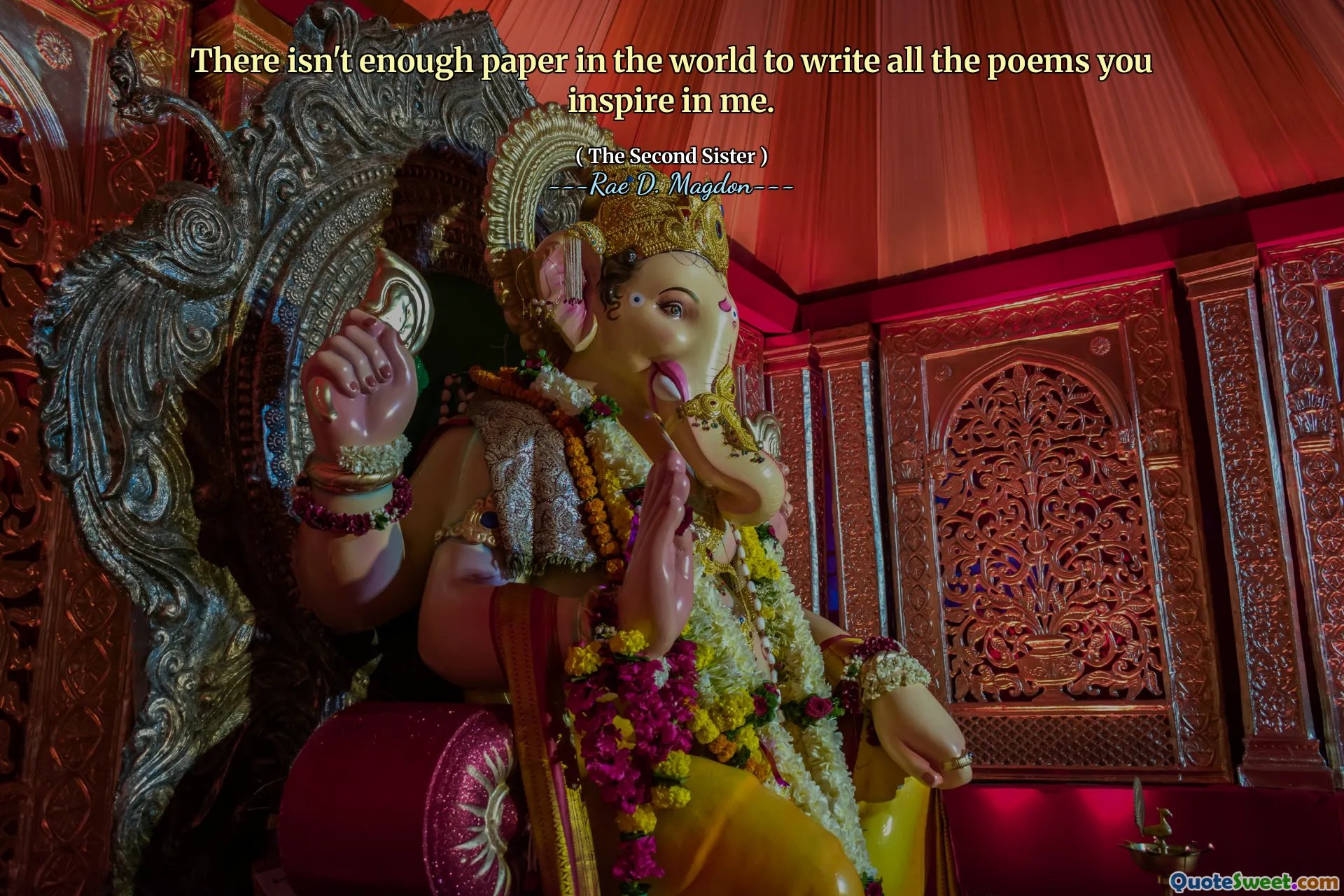
There isn't enough paper in the world to write all the poems you inspire in me.
This quote eloquently captures the profound impact that someone can have on an individual's creative spirit. The metaphor of lacking sufficient paper to document the inspired poems emphasizes not only the extent of the emotions or thoughts prompted by the subject but also speaks to the limitless nature of inspiration itself. It suggests a creative force so powerful that it transcends conventional means of expression, highlighting the ineffable quality of true inspiration.
The beauty of this thought lies in its universality—many people can relate to experiencing emotions and ideas so vast that they defy easy articulation. It reflects a common human experience of being overwhelmed by feelings brought forth by admiration, love, or profound connection. Such a sentiment speaks to the intrinsic relationship between muse and creation. It is an ode to the muse, who ignites passionate creativity and provides endless subjects for artistic expression. Additionally, the quote telescopes the idea that some inspirations are so deep and rich that attempting to capture them fully is impossible, thus honoring the mystery and depth of human emotion.
In the realm of literature and the arts, this quote resonates by acknowledging that creative output is an ongoing process spurred by the muses of the heart and mind. It makes us appreciate not only the work produced but also the feelings behind creation. This perspective encourages us to cherish sources of inspiration and recognize their invaluable role in shaping our internal worlds and tangible works.






